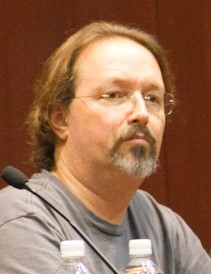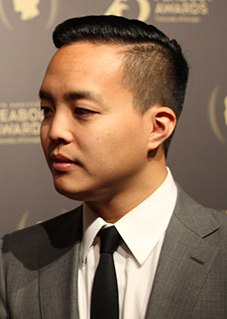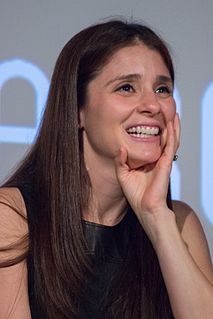A Quote by Carlton Cuse
I can't say that the ending of a story is always the best part of the story, and yet there's sort of this implicit idea that the finale is somehow supposed to be the mind-blowing best episode of a show. The question is: Why is that? Why do people make that assumption?
Related Quotes
Take the story of Cain and Abel. Why were we given that story? Scientifically, you may have an explanation for it, but I'm not approaching it from the scientific point of view. I'm saying: Why do we need that? It's a sordid story, a depressing story, a dark story. Why should I believe that I'm a descendant of either Cain or Abel? Thank God there is a third son! [Genesis 4:25]
There's a misunderstanding that I've always tried to address straight on when this question comes up, which is that a 'Half-Life' story can somehow exist outside of a game. It can't. The story is created through the process of trying to figure out how to best use the features of the engine within the interesting set of constraints it poses.
['John F. Kennedy] movie is based on a massive best-selling book, which is always helpful. And then the script was amazing and answered my question, "Why this? Why now?" And the "why now" is that it's 50 years since the assassination, and the country needs to have and will have a conversation about that. And the "why this" is the construct, which I think is sort of ingenious.
The biggest threat to your creativity is the fear that it's already been done, said, created. (So why bother?)
Say it, do it, make it anyway - but tell YOUR story along the way.
The story of how you came to know what you know.
The story of what you want to know more of.
The story of why you do what you do.
The story of how you came to care.
And that's how you create what's never been created before.
We who make stories know that we tell lies for a living. But they are good lies that say true things, and we owe it to our readers to build them as best we can. Because somewhere out there is someone who needs that story. Someone who will grow up with a different landscape, who without that story will be a different person. And who with that story may have hope, or wisdom, or kindness, or comfort. And that is why we write.
This is not just a simple story of "money can't buy happiness." Or maybe that's just what it is. And if it is, why shouldn't it be? Because if this is something we are already supposed to know, then why don't we know it? Why do we chase and scrabble and fight for things to flaunt, why? Why do we reach for power over other people, and through the thin superiority of our possessions, believe we have it? Why do we let money make people bigger, and allow those without it to be made smaller? How did we lose the truth in the frantic, tribal drumbeat of more, more, more?
The argument culture urges us to approach the world - and the people in it - in an adversarial frame of mind. It rests on the assumption that opposition is the best way to get anything done: The best way to discuss an idea is to set up a debate; the best way to cover news is to find spokespeople who express the most extreme, polarized views and present them as 'both sides'; the best way to settle disputes is litigation that pits one party against the other; the best way to begin an essay is to attack someone; and the best way to show you're really thinking is to criticize.
As an actor, you don't really have a say or a voice in what the conversation of the show is going to be. So, as an actor, I'm just trying to make sense of why the character is making these choices, and somehow, in that way, you can sympathize or root, at least not detest, what this person is doing. That's, at least, my job in telling that story.




































